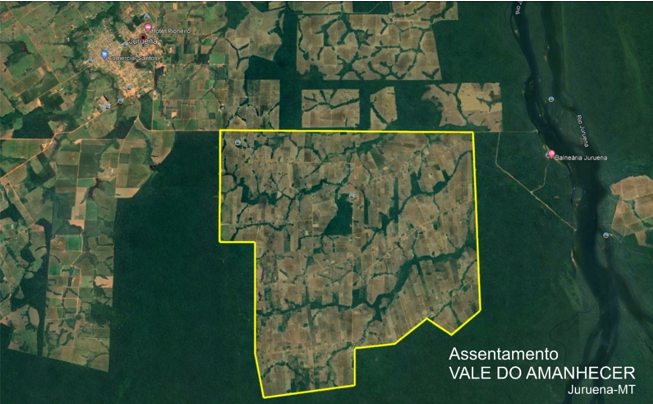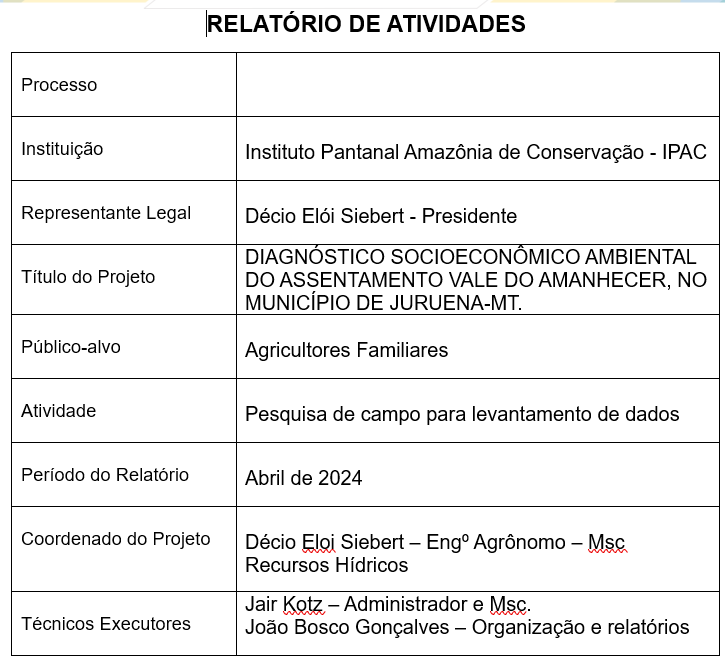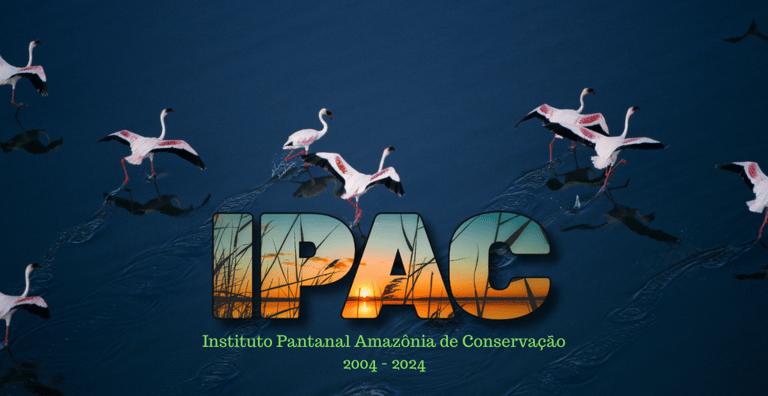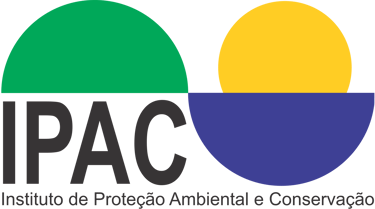TANGARÁ DA SERRA-MT . BRASIL 55 65 99987-8717 IPactangara@GMAIL.COM
Socioeconomic Survey of the Vale do Amanhecer Settlement
JURUENA - MT




ACTIVITIES
The research was conducted through field data collection, conducted in the form of interviews with farmers in the Vale do Amanhecer Settlement, in the municipality of Juruena-MT, in addition to some photographic records.
171 properties in the Vale do Amanhecer Settlement were visited. Of these, 144 responded to the proposed questionnaire and it was not possible to collect data from 27.
Through the 144 surveys collected, it was possible to determine that the resident population of the settlement is 374 people.
In order to conduct this research, a script consisting of open and semi-open questions was previously prepared. This questionnaire was created and discussed by the project team, which, after some consideration, approved it.
To answer this form, we sought a single person from each property, with sufficient knowledge to provide answers to the questions formulated. Generally, the persons responsible for the property volunteered for the task. We consider the person responsible for the property, or owner, to be the person who holds possession and is responsible for the lot acquired in the settlement.
The interview schedule is based on three main axes: social, economic and environmental, and its objective was to understand the social conditions of the Settlement, using education, health and housing as indicators.
The interview also aimed to obtain information on other indicators that focused on the economic aspects of family farming, and to this end, the following points were defined: agricultural production and technical assistance. Since agricultural production in the settlement has cultural and climatic variations, in order to obtain acceptable information, it would be necessary to monitor family activities for a longer period of observation and, from there, form the management of the property.
In order to construct a “portrait” of the environmental situation of family farming, some other indicators were studied, such as: work method, water and disposal of sewage and garbage. It is understood that these parameters are essential to have an overview of the current situation of family farming in this settlement.
OBJECTIVES
General Objective.
Considering the context explained above, this research aims to analyze the perspective of sustainability in the development of family farming, considering indicators of the social, economic and environmental scope, without disregarding elements that are intrinsically linked.
Specific Objectives
Taking into account the premise of the general objective, the following specific objectives were defined for this research:
a. To verify the general characteristics of family farmers, considering mainly the social, environmental and economic aspects;
b. To verify the main productive, non-productive and commercial activities of the farmers;
c. To investigate the main obstacles and possibilities that permeate the agricultural activities of the farmers.

Institute for environmental preservation and conservation
We defend environmental and cultural preservation.
CONTACT
contato@ipac.org.br
55 65 99987-8717




